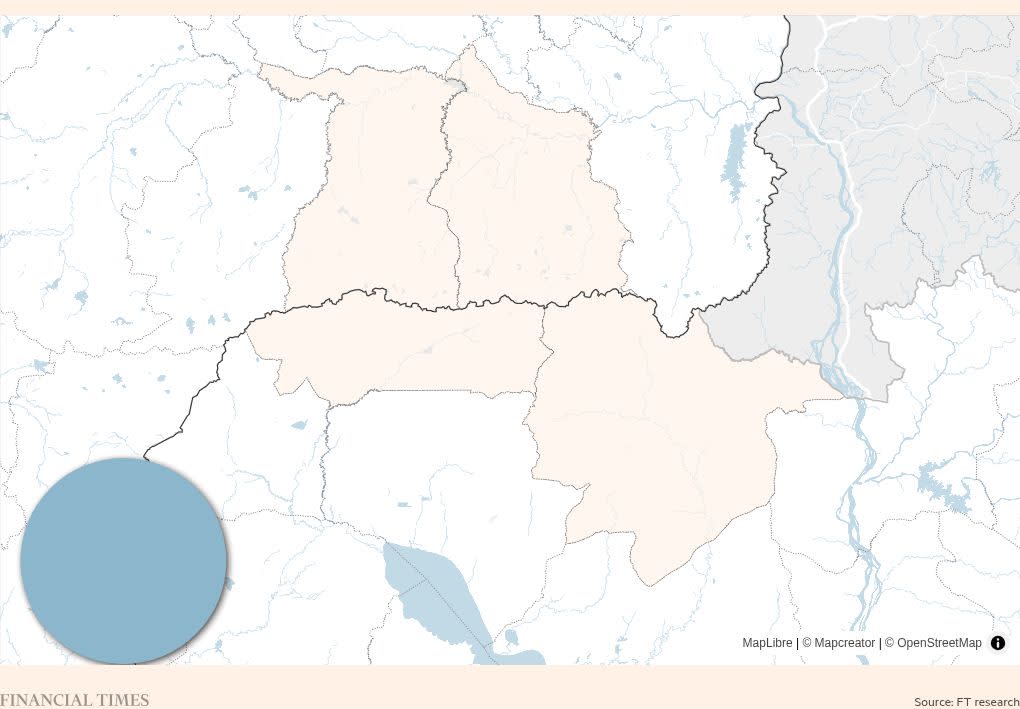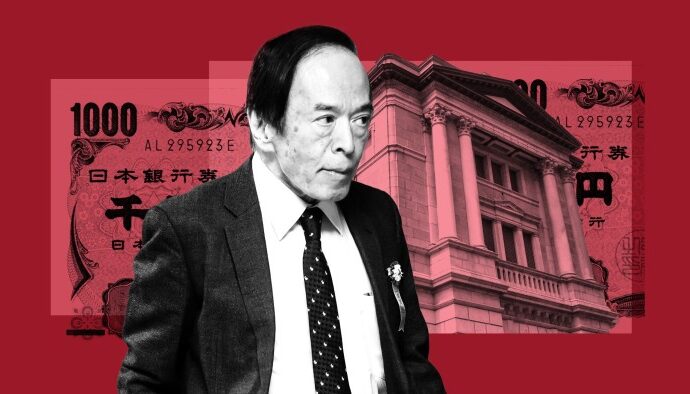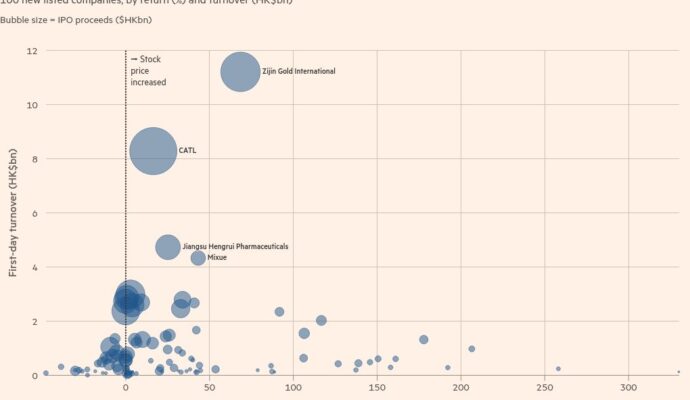Unlock the Editor’s Digest for free
Roula Khalaf, Editor of the FT, selects her favourite stories in this weekly newsletter.
Thailand and Cambodia have agreed a ceasefire to end fighting along their shared border that has killed more than 30 people and displaced about 300,000 in recent days.
The pact, which will come into effect at midnight local time on Monday, was sealed by leaders of the two neighbouring south-east Asian nations at talks in Malaysia that were held as their governments traded accusations of firing into each other’s territory for a fifth day.
The ceasefire deal followed an intervention by US President Donald Trump, who had warned he would terminate trade talks with Cambodia and Thailand if they did not stop fighting.
Anwar Ibrahim, Malaysia’s prime minister and rotating chair of the Association of Southeast Asian Nations, announced the agreement in Kuala Lumpur, flanked by the Cambodian and Thai leaders.
“Prime Minister Hun Manet and acting Prime Minister Phumtham Wechayachai have expressed their positions and willingness for immediate ceasefire, immediate ceasefire and [a] return to normalcy,” Anwar told a news briefing.
The Malaysian prime minister added that Trump had been “urging the leaders to find a peaceful resolution to their conflict”.
He said Thailand and Cambodia had agreed to a meeting of their regional military commanders on Tuesday morning, to be followed by a meeting of defence attaches. They would also convene a meeting of the General Border Committee, a bilateral military group, on August 4.
In a post on his Truth Social platform, Trump claimed credit for the ceasefire and said he had called the Thai and Cambodian leaders.
“I have instructed my Trade Team to restart negotiations on Trade,” Trump wrote. “I have now ended many Wars in just six months — I am proud to be the President of PEACE!”
Anwar said China, which has friendly relations with both Cambodia and Thailand, had also kept in “close contact” with them and Malaysia during the efforts to broker a ceasefire.
Earlier on Monday, China’s foreign ministry said it was “deeply saddened” by the casualties caused by the clashes and that it intended to “play a constructive role in promoting a ceasefire and ending the conflict”.
Hun Manet said he hoped to immediately stop the fighting that had “cost many lives” and that had created 140,000 refugees in Cambodia and 160,000 in Thailand.
Phumtham thanked Anwar, Trump and the government of China for helping to broker an outcome that reflected “Thailand’s desire for a peaceful resolution”.
Fighting broke out on Thursday after weeks of rising tensions between Thailand, a US treaty ally, and Cambodia over a long-running and emotive border dispute. The two sides accused each other of targeting civilian areas after both fired artillery and Thailand’s air force struck targets in Cambodia.
Earlier on Monday they continued to exchange fire and trade accusations. Cambodia claimed Thailand had fired first after 3am on Monday.
Thailand said it had been attacked from Cambodia, and fired back to defend itself and prevent an “incursion into strategic terrain”.
Analysts said the ceasefire had been prompted in large part by Trump’s trade threat.
“Cambodia had very little option but to secure a ceasefire,” said Virak Ou, founder of Future Forum, a Phnom Penh-based think-tank. “The US is the biggest market for Cambodian exports, so any trade deal with the US will have broad implications for the economy for years to come.”
Cambodia and Thailand have been in talks with the US meant to fend off Trump’s threat to levy 36 per cent “reciprocal tariffs” against both countries. The tariffs are set to take effect from August 1.
In addition to the people displaced along the border, the fighting has prompted an exodus of many of the more than 1mn Cambodian migrant workers based in Thailand back to their home country.
Cambodia’s labour ministry said on Monday it expected nearly 150,000 workers to return from Thailand over the course of the day, bringing the total of returnees to nearly 400,000 in five days of fighting.
Additional reporting by Wenjie Ding in Beijing and Steff Chávez in New York


